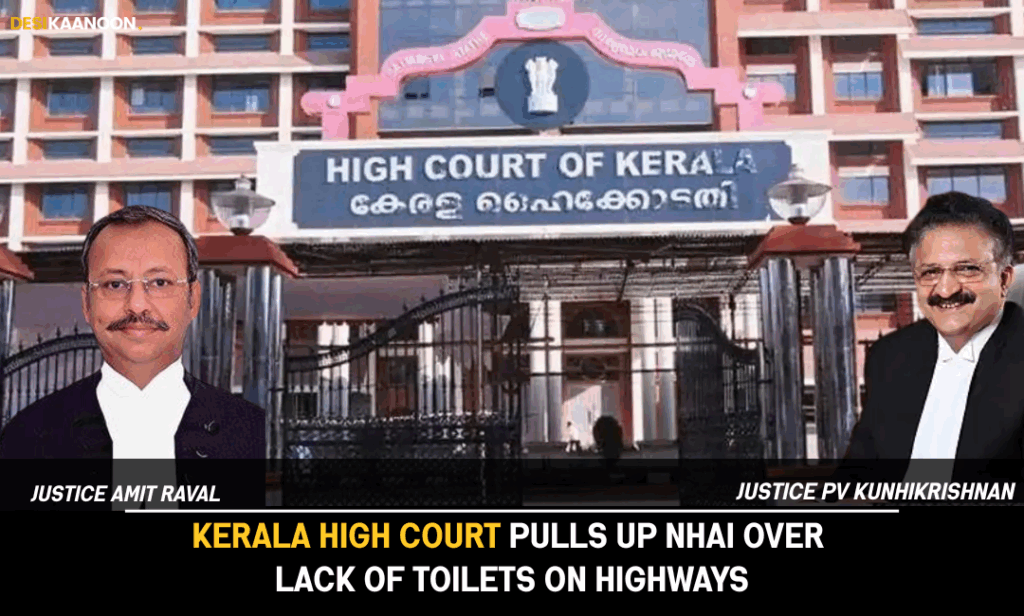Shreya Gupta
On 18th September, 2025, the Kerala High Court recently came down strongly on the National Highways Authority of India (NHAI) for its failure to provide and maintain adequate public toilet facilities along National Highways. The case centred on the responsibility of petrol pump owners to make their washrooms accessible to the general public.
A Division Bench of Justice Amit Rawal and Justice PV Balakrishnan observed that there is a serious deficiency in public convenience infrastructure on highways, recounting Justice Rawal’s personal experience of traveling from Jaipur to Ranthambore without finding a single public toilet, though he was issued multiple challans for overspeeding. Justice Rawal emphasized that while enforcement measures like challans are strictly implemented, basic amenities like toilets are either absent or dysfunctional, which is unacceptable.
The Court heard the grievances of petrol pump owners, who argued that the responsibility of maintaining public toilets should not be unfairly foisted upon them, as it is primarily the duty of the NHAI. In response, the Bench acknowledged the validity of their concerns and drew comparisons with foreign countries, where convenience stops with food, beverages, and clean toilets are systematically available along highways.
The judges expressed disappointment at the lack of similar facilities in India, observing that the brunt of public expectations had fallen on private fuel stations rather than the authority responsible for national highway infrastructure.
The matter arose from a single-judge order which had earlier mandated that washrooms in petrol pumps on highways must be open to the public at all times, while those located outside highways should remain accessible to customers and transit travellers but could restrict access for the general public only on valid safety grounds. On appeal, the Division Bench modified these directions by introducing a distinction between petrol pumps located along highways and those in other areas. It ruled that fuel stations not situated on highways may exercise their discretion in allowing or disallowing use of toilets by the general public, although they must provide access to their customers and travellers in transit.
With respect to petrol pumps along National Highways, however, the Court took a stricter view. Referring to a circular issued by the Ministry of Road Transport and Highways, it directed that such outlets must allow customers, transit travellers, and staff to use their toilets, albeit only during the working hours of the fuel station.
This modification balanced the earlier ruling by easing the burden on non-highway outlets, while still holding highway fuel stations accountable to facilitate public convenience in accordance with official guidelines. Through this decision, the Court underscored the urgent need for the NHAI to step up its responsibilities in creating and maintaining proper sanitation facilities along highways, rather than shifting the obligation onto private petrol pump owners.
Case Title: Petroleum Traders Welfare and Legal Service Society & Ors v State of Kerala & Ors.
Bench: Justice Amit Rawal and Justice Balakrishnan
Instagram: Click here
LinkedIn: Click here
For Collaboration and Business:info.desikaanoon@gmail.com

